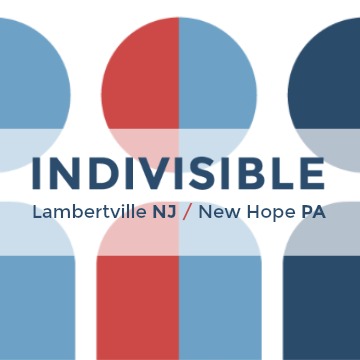Contributed by Amara Willey.
I recently received an email from the Biden-Harris campaign that was purportedly from Yo Yo Ma. The email said a lot of what recent emails from the Democratic campaign typically contain, “We are in a battle for the soul of the nation. It’s a battle to uphold and honor the values that we hold dear, values like empathy and dignity, and respect for truth.” You may have received an email containing a similar message recently.
The campaign landscape in the last few months has been a tug-of-war over who might be better at keeping the country safe, former Vice President Joe Biden or President Donald Trump, culminating in the two parties’ conventions at the end of August. Biden has focused on the president’s handling of COVID-19, while Trump has blamed Biden and “liberals” for the violent protests around the country.
At the end of August during a rare in-person appearance in Pittsburgh, Biden turned from his usual focus on the “soul of the nation,” by saying that Trump has been a “toxic presence in this nation for four years” who was “poisoning the values this nation has always held dear, poisoning our very democracy.”
Both Biden and his running mate Kamala Harris have used the phrase “battle for the soul of the nation” repeatedly since Trump took office. Biden first used the phrase in 2017 and Harris in January of 2019.
Spencer Critchley, who worked on former President Barack Obama’s 2008 and 2012 campaigns, noted the use of the phrase by both Biden and Harris was “not a surprising coincidence, because I think whether people use that specific language or not, the exact same thought has occurred to so many of us across the country.”
Critchley said in USA Today that Democratic candidates, such as Hillary Clinton, can often focus too much on analytical arguments and policy details. Speaking about the country’s soul is an effective way to speak to the “non-rational” part of voters’ minds.
“There is more to life than reason, and people are not motivated by data. They are motivated by matters of the heart and the soul,” Critchley said.
Democratic strategist and columnist Michael Gordon said the use of such similar language from the two candidates shows “they both see this election as about the fundamental values that Americans hold, and the fundamental values that our country lives by.”
Gordon said framing the election as a fight for America’s soul can persuade independent voters who are wary of Trump and motivate progressive Democrats who may view Biden as too moderate.
“People are just looking for a reason to pull the lever for this ticket. Talking about the fundamental damage that Trump has done and repairing that – and actually bring us to a better place, perhaps because of it – I think will resonate and inspire,” Gordon said. “We need to appeal to those swing suburban voters, but we also need to inspire the base to come out, and so I think it’s a theme that works for both.”
What exactly is at stake here? Jacob Needleman, in his book, “The American Soul,” described the soul of the country this way: “The deeper hope of America is its vision of what humanity is and can become.”
Ernest Renan, a 19th-century French philosopher, wrote, “A nation has a soul, a spiritual principle. One is in the past, the other in the present. One is the possession of a rich legacy of memories; the other is the desire to live together and to value the common heritage.”
“Joe Biden is right, this is a contest for the soul of the nation. And to me that contest is not between good Americans and evil Americans,” South Bend, Indiana mayor Pete Buttigieg said to the Associated Press. “It’s the struggle to call out what is good for every American.”
At the Democratic convention, Biden summed up his view of the campaign: “We choose a path of becoming angry, less hopeful and more divided, a path of shadow and suspicion, or we can choose a different path and together take this chance to heal.”
Biden’s call for unity comes as some strategists worry that Democrats cannot retake the White House simply by tearing Trump down, that Biden needs to give his sprawling coalition something to vote for. That’s easier said than done in a modern Democratic Party made up of disparate factions that span generation, race and ideology.
In his acceptance speech, Biden outlined the four major issues facing Americans right now – the pandemic, the economic downturn caused by it, racial unrest, and climate change. He also called on some less tangible ideas: love and hope and light.
“If you entrust me with the presidency, I will draw on the best of us, not the worst,” Biden said in his convention speech. “I will be an ally of the light, not the darkness.”
The Democrats’ strategy to focus more on rhetoric and less on policy at this convention was mirrored the following week at the GOP convention. Trump has always had an uncanny knack for touching people’s emotions, and the Republicans were true to form. Politico characterized Trump’s message in the following way: “Trump is protecting all that was good — and the Democrats are on the verge of plunging America into darkness.”
“The Trump folks seem to have leaned more on a base activation strategy than a ‘converting undecided voters’ strategy,” said Seth Masket, a political science professor at the University of Denver, told Politico. “And they’re trying to get Republicans who are already Republican fired up about their ticket and make sure that they’re still enthusiastic and that they’re going to show up in November.”
Donald Trump Jr. focused on making the election a referendum on “cancel culture.” He said at the convention, “If they get their way, it will no longer be the silent majority. It will be the silenced majority. This has to stop. Freedom of expression used to be a liberal value, at least before the radical left took over.”
Trump Jr. entreated Republicans to believe the president can deliver everything they want — “the life you want to have,” “a perfect family,” “a world where the evils of communism and radical Islamic terrorism are not given a chance to spread.”
The Republican message also calls on protecting “American heritage,” the status quo, and rugged individualism.
“Your vote will decide whether we protect law abiding Americans, or whether we give free rein to violent anarchists, agitators and criminals who threaten our citizens,” President Trump warned in his convention speech. “And this election will decide whether we will defend the American way of life, or whether we allow a radical movement to completely dismantle and destroy it.”
A recent Brookings Institute report found that millions of white, working-class Americans without four-year college degrees — a demographic in which Trump has a 60 percent hold, according to a recent Wall Street Journal/NBC News poll — accounted for the vast majority of nonvoters in 2016. That finding is particularly strong in swing states Pennsylvania, Wisconsin and Michigan, where roughly 62 to 67 percent of nonvoters who sat out 2016 were white voters without college degrees.
“Trump’s entire convention, just like his entire presidency, is targeted toward that very specific group of voters,” said Dan Schnur, the national communications director for John McCain’s 2000 presidential campaign, and now a political independent who teaches communications at the University of Southern California. “The more excited they are, and the greater numbers in which they turn out, the better his chances for reelection become.”
As Trump put it, “Our country wasn’t built by cancel culture, speech codes, and soul-crushing conformity. We are not a nation of timid spirits. We are a nation of fierce, proud, and independent American patriots.”
Over the coming months until the election, we will watch as the two main parties in the United States attempt to whip up the emotions of their constituents. Whether Americans believe that Biden or Trump is the self-proclaimed Light Bearer seems to be the strategy both parties are taking for winning the election.
Perhaps Boyd Mattheson, opinion editor at the Deseret News said it best. “America does have a soul and spiritual principle,” Mattheson wrote. “Remembering that such things belong to ‘we the people’ is paramount. Each of us living up to the better angels of our nature is the real test for the soul of America.”
Whatever you may think about the Donald, he represents a portion of the American people who see his “values” as their own. It remains to be seen whether Biden can speak to the part of the American people who see the Democrats as “elite arrogant ivy-league types.”
Sources:
https://apnews.com/7027ede0a6e3fbf8c1dfc6d4613cd6bd
https://www.politico.com/news/2020/08/25/the-trump-maga-verse-consumes-the-rnc-401412
https://www.bbc.com/news/election-us-2020-53942272
https://extranewsfeed.com/maga-versus-build-back-better-4fb1723ed99f
https://apnews.com/d55cc54be76c680219cbff477deec40e
https://www.cnn.com/2020/08/28/politics/republican-convention-analysis/index.html



